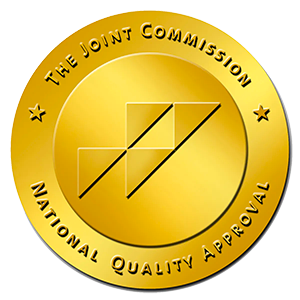By Anna McKenzie
Military sexual trauma remains far too common in US Armed Forces, and its effects can have a lasting impact on service members’ livelihood. A major concern for military women, sexual assault frequently goes unreported and unpunished. Soldiers who have experienced sexual harassment or assault may develop symptoms of post-traumatic stress disorder (PTSD) and other mental health disorders, along with suicidal thoughts. However, with support and treatment, those who have experienced military sexual trauma can recover and lead fulfilling lives. It’s important to understand the nature of this kind of trauma, its effects, and how healing can happen.
What Is Military Sexual Trauma?
Military sexual trauma or MST is defined as sexual harassment or assault that a service member experiences during their tenure in the Armed Forces. According to DAV (Disabled American Veterans), MST may result from:

- Repeated sexual advances
- Sexual encounters that are forced or coerced
- Sexual encounters that take place when a person is not willing or unable to give consent
- Extortion or offers for something in exchange for sexual favors
- Inappropriate physical contact
- Lewd or inappropriate sexual jokes or remarks
Inappropriate touching, crude jokes, physical abuse, threats, harassment, and rape can all cause trauma, especially when those experiencing these issues are forced to continue to interact with perpetrators.
Military Sexual Assault By Gender
How many women are sexually assaulted in the military? While one in three female veterans say they have experienced military sexual trauma, compared to one in 100 male veterans, men make up 40% of all MST reports to the VA.
The unfortunate reason why many women don’t report their MST is that they fear they won’t be believed, says The New York Times Magazine. They also fear retribution from their perpetrator, peers, or even commanding officers. In cases where they report the issue and it is investigated, perpetrators may walk free due to lack of evidence or end up getting sentences that don’t fit their crimes.
The unfortunate reason why many women don’t report their MST is that they fear they won’t be believed.
Ongoing reforms have sought to eradicate the toxic culture that suppresses reporting. Service members who experience military sexual assault can transfer to a new unit; they also have the option to select special victims’ counsels. Since 2021, the Deborah Sampson Act has created provisions to monitor and address sexual harassment and assault at VA health centers, and VA employees are required to report any harassment they witness (or face consequences).
In 2022, US Senator Kirsten Gillibrand succeeded in getting a bill passed which removes commanding officers from judicial and prosecutorial decisions and puts those decisions into the hands of independent professionals. This bill means that those reporting military sexual assault do not need to fear retribution for reporting crimes and can have a greater opportunity to seek justice with the help of unbiased parties.
Military Women: Sexual Assault and Trauma Recovery
Military sexual trauma can have a strong effect on your livelihood, self-image, and health, but it can also be resolved. Survivors can experience healing and go on to live very fulfilling lives outside the service.
The first step in treating military sexual assault is recognizing its effects. Traumatic episodes or longstanding exposure to threats and harassment can cause the following:
- Post-traumatic stress disorder (PTSD)
- Persistent anxiety, especially related to encountering perpetrators (or anyone who resembles them)
- Panic attacks triggered by reminders of the event
- Suicidal thinking
- Episodes of depression
- Low self-esteem and a sense of worthlessness
- An inexplicable feeling of shame and being at fault
- Social isolation
- Outbursts of anger
- The development of other mental health conditions
- Chronic pain or ailments
- Feelings of betrayal or disconnection
The New York Times Magazine also shared that women who have experienced military sexual trauma are twice as likely as other women to later experience intimate partner violence, and they are about twice as likely as other women veterans to experience homelessness at some point. A study of 300 servicewomen and female veterans who had experienced military sexual assault revealed a shocking 29% were currently contemplating suicide.
Overcoming Military Sexual Trauma
How can military sexual trauma be overcome? Here are some solutions that can help:
While no trauma is the same, many others have been in your shoes. And you can get well.
- Recognize that you are not alone and that you can recover. You must realize that while no trauma is the same, many others have been in your shoes. And you can get well.
- Seek help from a treatment professional or program. You may want to get help outside of the VA. A trained counselor, therapist, or treatment team can help you work through your trauma.
- Get into a support group. These are environments where others will show you that you are not alone, and you can help each other reach a place of healing.
Recovery is a process. With treatment and support, you can find freedom from the past, compassion for yourself, and the ability to embrace life with hope. You can walk the road to a more fulfilling life, and there are people who will gladly walk that road with you.
Help for Military Sexual Trauma
If you’re suffering from the effects of military sexual trauma, we can help. At Bournewood Health Systems, we’re dedicated to providing quality, evidence-based, person-centered treatment in a safe environment. We accept TRICARE insurance, and we have a psychiatrist physician on campus 24/7 to monitor your wellness and provide support. Contact us today to learn more about our programs and admissions process.


